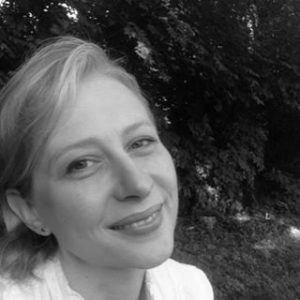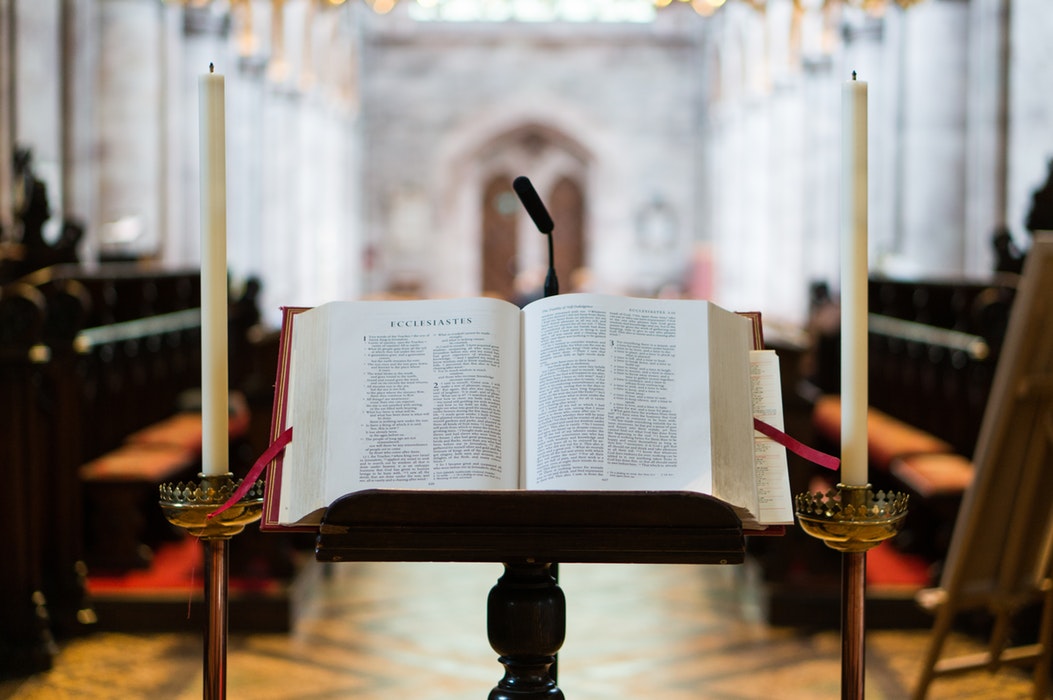By Mandy Smith —
“Once God got me on the bus he switched the sign on the front.”
It’s a flip way I sometimes joke about the pain of living out a decision I made 30 years ago, one I still don’t understand—the decision to follow God’s call to ministry.
My husband and I have always joked about getting married on April Fools’ Day. Since the decisions to marry and to serve in ministry together felt like one decision, we made our wedding and our ordination into one ceremony. Five minutes after we’d committed to a life together, the elders laid hands on us and we were already giving that new life away. Doubly fools
When I decided to marry I thought I knew what I was doing. I thought the marrying part was a way to commit to be forever with this person I already knew. What was actually happening was a commitment to spend the rest of my life learning about him. No one told me it’s the same with committing to a life in ministry.
Which is why I’ve come to love the way that epistemologist, Esther Lightcap Meek describes our commitment to what we do not yet know. “To pledge is to say ‘I do’ to the knowing venture . . . . Pledging your allegiance to what you do not yet know is enormously risky . . . . We pledge to take the risk to follow something that may prove not to be there, something that may prove to be way different from what we imagine. We accept the prospect that others might think us foolish—that we might prove to be foolish.” (A Little Manual for Knowing, p 27)
It’s easy to think God was cruel to switch the signs on the bus. But thirty years ago I could not have even imagined where I am now and what I’m doing now, much less be able to assent to it. Making “sensible” decisions means we expect—as the person we are before we even begin—to fully understand something we’ve never done before. What if the 2018 outcomes are beyond our 1990 comprehension? What if we have to take the first step before we can even imagine the second? So to make a commitment to follow God will always mean making decisions that look foolish to those who have not yet ventured into the commitment—including ourselves.
And although I still can’t explain how I got here or why, on the days I feel most foolish and confused, I ask myself, “What else would I do?” And as much as this path feels foolish, there is nothing else that makes any more sense.
And so, it’s with relief that I read Frederick Buechner’s reminder that, although I misread it, foolishness was the sign on my bus all along.
“The joke of it is that often it is the preacher who as steward of the wildest mystery of them all is the one who hangs back, prudent, cautious, hopelessly mature and wise to the last when no less than Saint Paul tells [her] to be a fool for Christ’s sake, no less than Christ tells [her] to be a child for [her] own and the kingdom’s sake.” (Telling the Truth, p 98.)
—————————————————————————————————————–
 Originally from Australia, Mandy Smith is lead pastor of University Christian Church, a campus and neighborhood congregation with its own fair-trade café in Cincinnati, Ohio. She is a regular contributor to Christianity Today publications and the Missio Alliance Blog and the author of The Vulnerable Pastor: How Human Limitations Empower Our Ministry. Mandy and her husband Jamie, a New Testament professor at Cincinnati Christian University, live with their two kids in a little house where the teapot is always warm.
Originally from Australia, Mandy Smith is lead pastor of University Christian Church, a campus and neighborhood congregation with its own fair-trade café in Cincinnati, Ohio. She is a regular contributor to Christianity Today publications and the Missio Alliance Blog and the author of The Vulnerable Pastor: How Human Limitations Empower Our Ministry. Mandy and her husband Jamie, a New Testament professor at Cincinnati Christian University, live with their two kids in a little house where the teapot is always warm.

